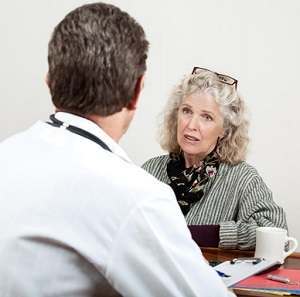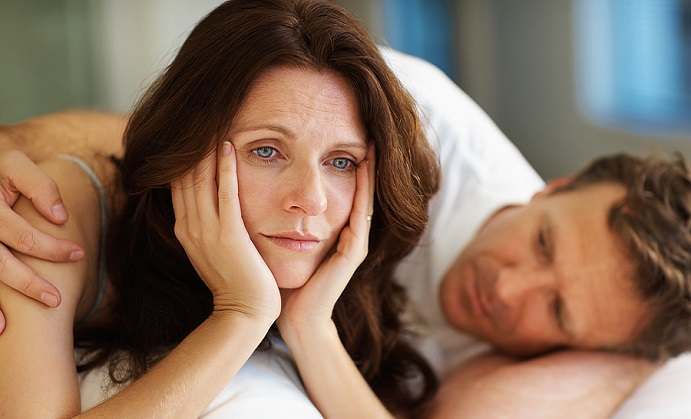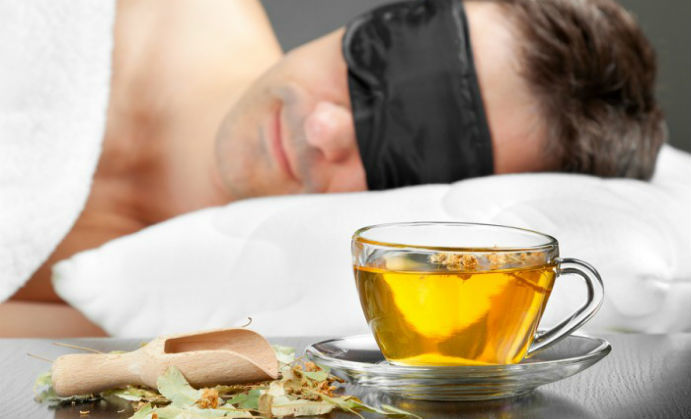Menopause can be a challenge, and you might feel especially challenged if you find yourself fighting sleeplessness, too. The bad news is that menopause and sleeplessness often go together. The reason might be straightforward. For example, you might have hot flashes or night sweats that are keeping you from a good night’s sleep. Or the reasons may be more obscure.
That’s because insomnia comes in different forms. It’s often classified according to duration. Transient insomnia is sleeplessness that typically lasts for one to three weeks. Acute sleeplessness lasts for three to twenty-four weeks, and chronic sleeplessness is persistent. In addition, insomnia is seem as primary if it isn’t associated with your health or environment, and secondary if it’s associated with a health concern. These classifications are useful when planning treatment. For example, sleeplessness for a few days that doesn’t seem related to a health issue is treated differently than chronic sleeplessness related to your health.
 The recommendation for menopausal women suffering sleeplessness is that they see their doctor for an evaluation and discussion of treatment options. It makes sense because menopausal sleeplessness can quickly lead to a cycle of no-sleep and increased irritability, which leads to even less sleep and more irritability, and so on.
The recommendation for menopausal women suffering sleeplessness is that they see their doctor for an evaluation and discussion of treatment options. It makes sense because menopausal sleeplessness can quickly lead to a cycle of no-sleep and increased irritability, which leads to even less sleep and more irritability, and so on.
But even before your doctor’s appointment you can take some useful actions. Think about whether you’re doing something new, like taking a new medication or you just started drinking a brand of strong coffee, or your husband took a night job and you find it hard to sleep alone. If you can pinpoint a problem like this, you can take corrective action.
If you can’t identify a likely cause, you might consider improving your normal routines. For example, you might eat more fruits and veggies or start an exercise plan, or maybe put yourself on a sleep schedule that includes some relaxation time before you go to bed. If you do start exercising, the recommendation is to exercise during the day. Remember, you want to fill the evening hours with relaxing activities in preparation for sleep, like maybe a relaxing bath, soothing music, and some warm milk. Skip the wine because alcohol can interfere with getting sound sleep.
 If none of this seems to make a difference, you will at least have gained more information to share with your doctor. You might notice that the above recommendations didn’t include herbal remedies. If you visit a natural food store you’ll find options, but these remedies don’t always solve the problem either, and you’re advised to discuss them with your doctor before you start using one. Hormonal issues are often related to menopausal insomnia. Lower levels of estrogen during menopause can play havoc with your life in general, and with your sleep in particular. For one thing it leads to reduced levels of serotonin, a hormone related to sleep. Look back at when your sleeplessness began and whether it might be related to menopause, which will make you better prepared for your visit with your doctor.
If none of this seems to make a difference, you will at least have gained more information to share with your doctor. You might notice that the above recommendations didn’t include herbal remedies. If you visit a natural food store you’ll find options, but these remedies don’t always solve the problem either, and you’re advised to discuss them with your doctor before you start using one. Hormonal issues are often related to menopausal insomnia. Lower levels of estrogen during menopause can play havoc with your life in general, and with your sleep in particular. For one thing it leads to reduced levels of serotonin, a hormone related to sleep. Look back at when your sleeplessness began and whether it might be related to menopause, which will make you better prepared for your visit with your doctor.
You’ve probably already grappled with whether to take hormone replacements therapy (HRT). It’s a thorny issue even for people who aren’t suffering from insomnia. Besides discussing HRT, your doctor can provide information about other possible options, depending on what might be causing your particular sleep problem.
Do you want to find an effective Insomnia treatment? Check out our top rated Insomnia products











